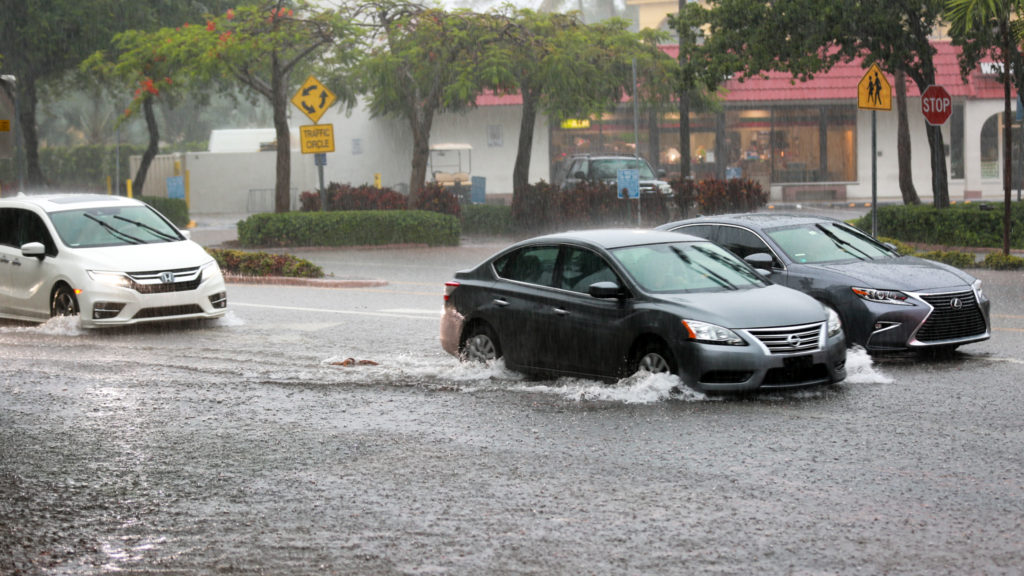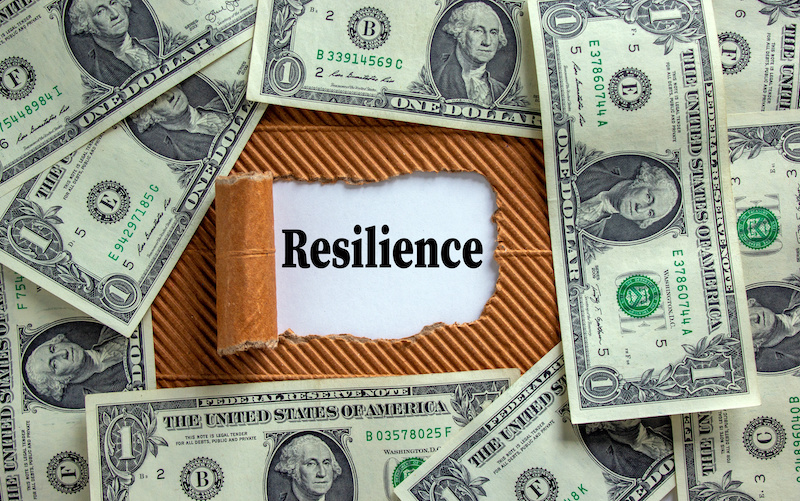Storm Over Stormwater: Condo Group Opposes Higher Fees
Tony WintonAugust 26, 2019

Cars drive through a flooded portion of Harbor Drive on Key Biscayne during heavy rain, June 16, 2019. The Village of Key Biscayne is considering a large increase in stormwater drainage fees for homes and condominiums to improve the network of drains and pumps, but the measure is being opposed by a condominium group (Key News/Tony Winton)
Improving Key Biscayne’s ability to quickly recover from flooding might be widely-shared goal, but paying for it?
That’s another question, at least judging by the initial reaction from an island condominium group.
Village Manager Andrea Agha is recommending a near-doubling of stormwater drainage fees at Tuesday’s Village Council meeting, saying the existing charges are too low to properly maintain the current system, let alone improve it.
Her proposal outlined two options for increases. The first option would keep the level of service at current levels, with a monthly increase of $1.45 condos and $2.18 for single family homes.
The second option – and the one Agha is recommending — would improve service and partially fund capital improvements over the next three fiscal years. This option would increase monthly charges $8 for condos and $12 for single family homes. If adopted, the proposal would fund $17 million, or about half of the $35 million stormwater plan.
But Michele Estevez, a former member of council and now the executive director of the Key Biscayne Condominium Presidents’ Council, said that her group is opposed to the increase, at least as it was presented.
“You’re going to find a lot of opposition,” she told Mayor Mike Davey at a public meet-and-greet last week.
Estevez says the condos don’t get any service to the stormwater drains and wells they are required to maintain.
Davey said the plan should be better vetted and said he will ask his colleagues to defer Tuesday’s agenda item until the new budget workshop Sept. 3.
But he was skeptical of the claim that condominiums don’t benefit, saying the system is meant to cover public rights of way.
“Every house is responsible for keeping water on its property,” just as condominiums are, he said.
“We may have to require that single family homes have wells,” he added, noting the challenge of rising sea levels.
The stormwater fees have long been a bone of contention. In 1993, the four Key Colony condominium associations filed suit to block the fees. After a 1994 trial, Circuit Court Judge David Tobin threw out the condo’s challenge, ruling all island residents benefit from the system and that Key Colony received a “reasonable credit” for its reduced contribution to need. The ruling was affirmed by an appellate court in 1995.
Agha said she anticipated the objections by the condominiums, which echo the homes-versus-condo battle over a $46 million proposed utility undergrounding project. Still, she said she was open to listening about whether there were legal ways for the Village to help offset the costs condominiums face in maintaining their own network of drains and wells.
It’s not clear whether such a contribution would pass legal muster, but recently, the Village shifted course on storm debris removal from condominium property after hurricanes, an initiative led by Council Member Ignacio Segurola. Segurola did not return a call for comment.


